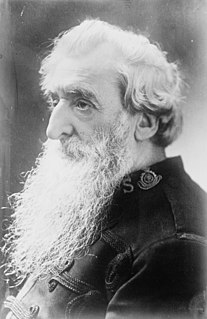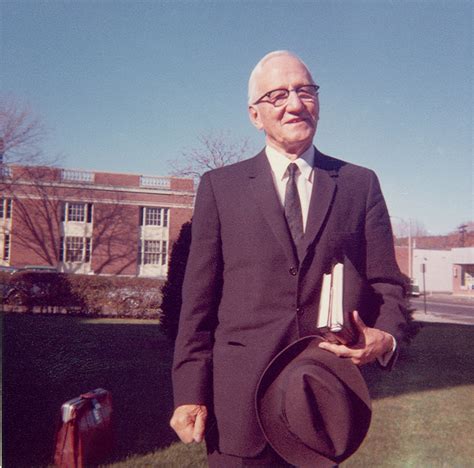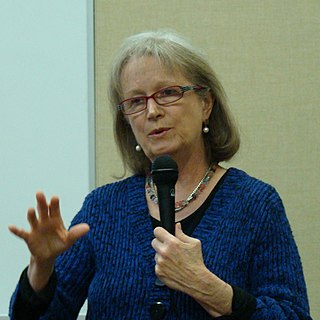A Quote by Emily Dickinson
My Faith is larger than the Hills— So when the Hills decay— My Faith must take the Purple Wheel To show the Sun the way— 'Tis first He steps upon the Vane— And then — upon the Hill— And then abroad the World He go To do His Golden Will— And if His Yellow feet should miss— The Bird would not arise— The Flowers would slumber on their Stems— No Bells have Paradise— How dare I, therefore, stint a faith On which so vast depends— Lest Firmament should fail for me— The Rivet in the Bands
Related Quotes
Faith, to be faith, must center around something that is not known. Faith, to be faith, must go beyond that for which there is confirming evidence. Faith, to be faith, must go into the unknown. Faith, to be faith, must walk to the edge of the light, and then a few steps into the darkness. If everything has to be known, if everything has to be explained, if everything has to be certified, then there is no need for faith. Indeed, there is no room for it.
We should not shrink from opportunities where our faith may be tried. The more I am in a position to be tried in faith, the more I will have the opportunity of seeing God’s help and deliverance. Every fresh instance in which He helps and delivers me will increase my faith. The believer should not shrink from situations, positions, or circumstances in which his faith may be tried, but he should cheerfully embrace them as opportunities to see the hand of God stretched out in help and deliverance. Thus his faith will be strengthened.
Therefore, a prudent ruler ought not to keep faith when by so doing it would be against his interest, and when the reasons which made him bind himself no longer exist. If men were all good, this precept would not be a good one; but as they are bad, and would not observe their faith with you, so you are not bound to keep faith with them.
It is terribly important to realize that the leap of faith is not so much a leap of thought as of action. For while in many matters it is first we must see then we will act; in matters of faith it is first we must do then we will know, first we will be and then we will see. One must, in short, dare to act wholeheartedly without absolute certainty.
Every living thing was shunning him. Poor little Peter Pan, he sat down and cried, and even then he did not know that, for a bird, he was sitting on his wrong part. It is a blessing that he did not know, for otherwise he would have lost faith in his power to fly, and the moment you doubt whether you can fly, you cease forever to be able to do it. The reason birds can fly and we can't is simply that they have perfect faith, for to have faith is to have wings.
To come to faith on the basis of experience alone is unwise, though not so foolish as to reject faith altogether because of lack of experience ... the quality of a Christian's experience depends on the quality of his faith, just as the quality of his faith depends in turn on the quality of his understanding of God's truth.
One faith, St. Paul writes (Eph. 4:5). Hold most firmly that our faith is identical with that of the ancients. Deny this, and you dissolve the unity of the Church ... We must hold this for certain, namely: that the faith of the people at the present day is one with the faith of the people in past centuries. Were this not true, then we would be in a different church than they were in and, literally, the Church would not be One.
It was actually books that started to make those pockets of freedom, which I hadn't otherwise experienced. I do see them as talismans, as sacred objects. I see them as something that will protect me, I suppose, that will save me from things that I feel are threatening. I still think that; it doesn't change. It doesn't change, having money, being successful. So from the very first, if I was hurt in some way, then I would take a book -- which was very difficult for me to buy when I was little -- and I would go up into the hills, and that is how I would assuage my hurt.






































